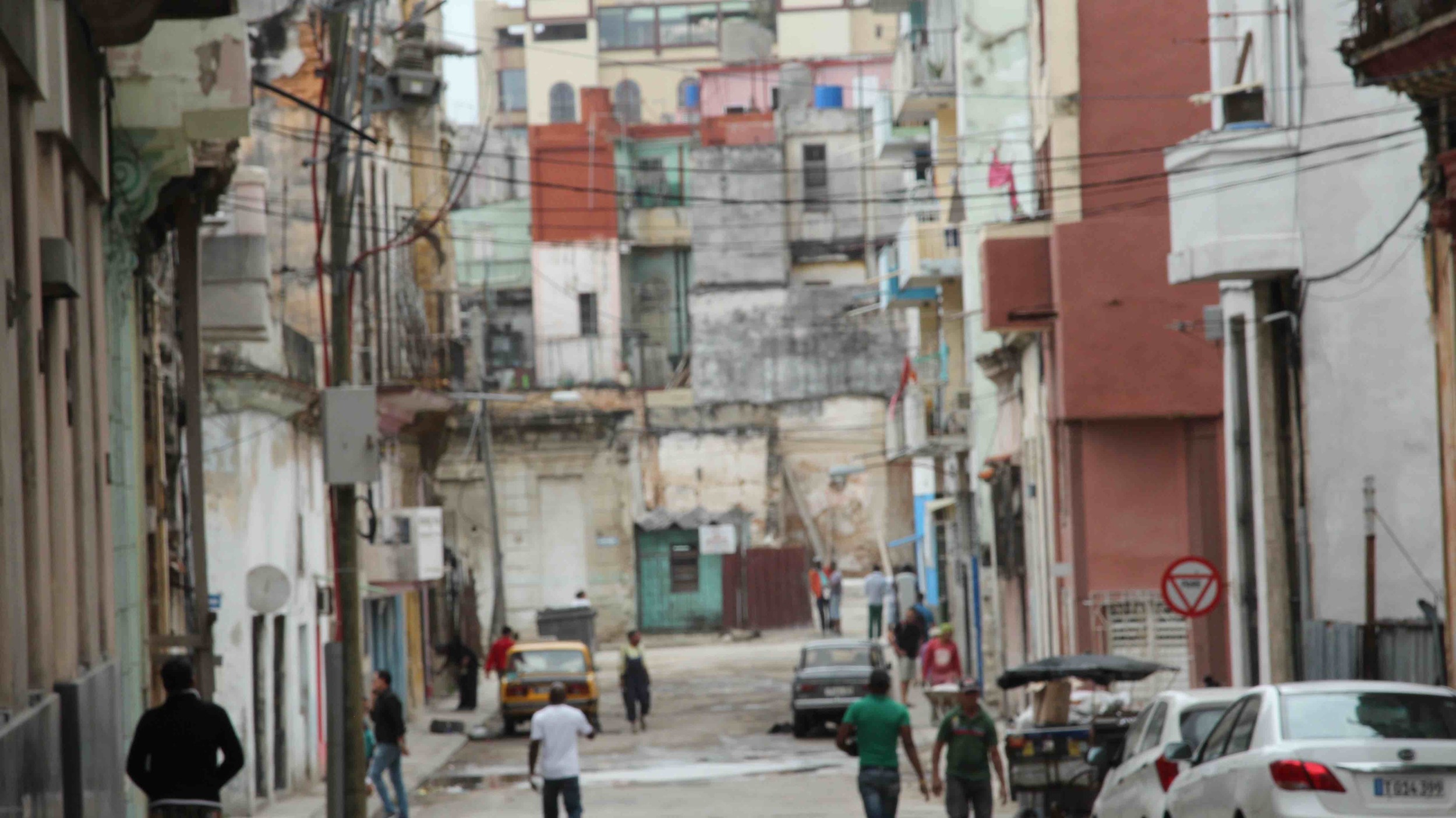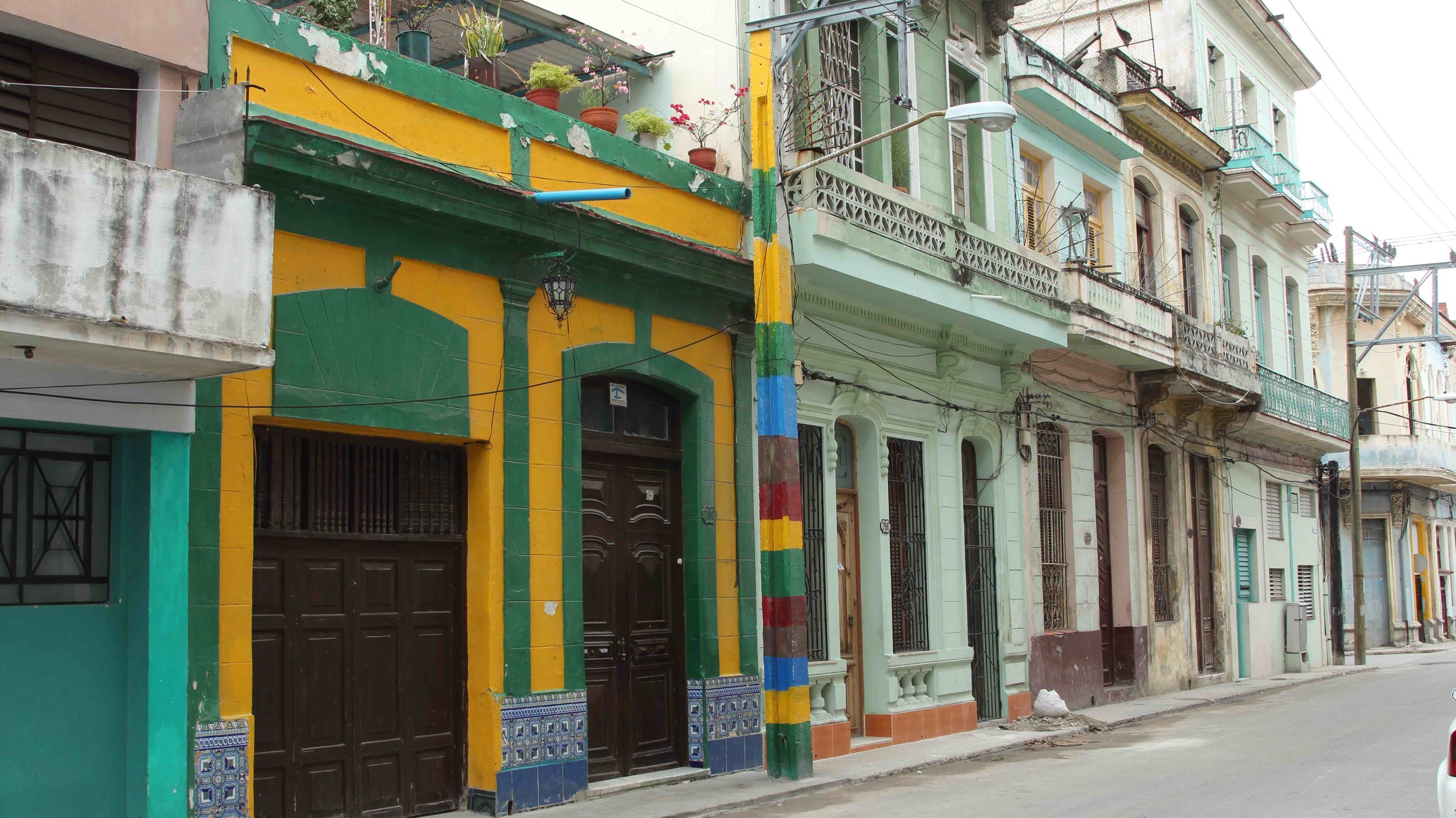Ken with Ernan López, jazz pianist and father of our series composer, Harold López-Nussa.
Bumped into several interesting people today, starting with Ernan Lopez-Nussa, patriarch of one of Cuba’s great contemporary jazz families. Ernan plays piano, like his son Harold, who will compose original music for our films. We shared responses to Los Rollings (The Rolling Stones) concert. It’s always interesting to talk to jazz and classical artists about rock and blues. We both agreed that Ronnie Wood was the best of the front line musicians. I still think of Wood as the “new” Stone; when he joined the band in 1974, two guitarists had already preceded him. Wood is also an accomplished artist, and a few of his portraits of rock and blues artists are hanging on my brother and sister-in-law’s walls.
Also saw Ian Waddell, former BritishMP from the socialist party. He wrote laws protecting the rights of indigenous Canadians. He was very excited at the election of Justin Trudeau, as Ian had served during his dad’s (Pierre) tenure.
But the day’s highlight, save for the mid-afternoon nap, which I needed after only four hours of sleep following a 4 AM bedtime (don’t ask), was the time I spent with Kadir López, one of the most interesting artists on the planet.
Kadir in his studio.
Kadir was very generous with his time and invited us to film as he welcomed an American art tour group organized by a couple who run an art center in Palos Verdes. The evening started with the group piling into a convoy of bulbous convertibles, yellow, pink, purple, and red, hood ornaments preceding their arrival. Honestly, it felt a bit strange. Kadir explores, among other themes, memory, and history. What do we take with us? What should we forget? What need we preserve? Both in the personal, cultural and political landscapes?
Much later in the evening, after the guests had left, sated with food, mojitos and art, I asked him in a midnight interview, about the convoy. He told me that the Americans’ memory is part of his work as well. Our histories are intertwined, not only since the revolution but for years prior. He has a strong critique of the colonial relationship the US imposed on Cuba after the Spanish-American war. And he also recognizes that we share this landscape. That past present and future are more a spectrum than three distinct time periods. The tourists in the old cars, looking at the neon signs he has restored throughout the city, (a huge and ongoing public project) are part of his art.
Bending glass for a neon sign.
I was thankful to have filmed it, and grateful for my incredible crew—Rafael Solis as cinematographer, Claudia Bueno as producer, Sergio Muñoz on sound. And props to Adolfo Nodal (Al), Kadir’s LA-based associate.
Kadir also gave us a demo in his workshop of bending neon over a blue flame. His work is quite visionary. In order to do it, he navigates the worlds of private fundraising and seeking permissions and licenses from the state. For him this is no conflict. Both entities ultimately want the work to be done.



































